Friday, December 8, 2023. Annette’s News Roundup.
I think the Roundup makes people feel not so alone.
To read an article excerpted in this Roundup, click on its blue title. Each “blue” article is hyperlinked so you can read the whole article.
Please feel free to share.
Invite at least one other person to subscribe today! https://buttondown.email/AnnettesNewsRoundup
___________________________
Joe is always busy.
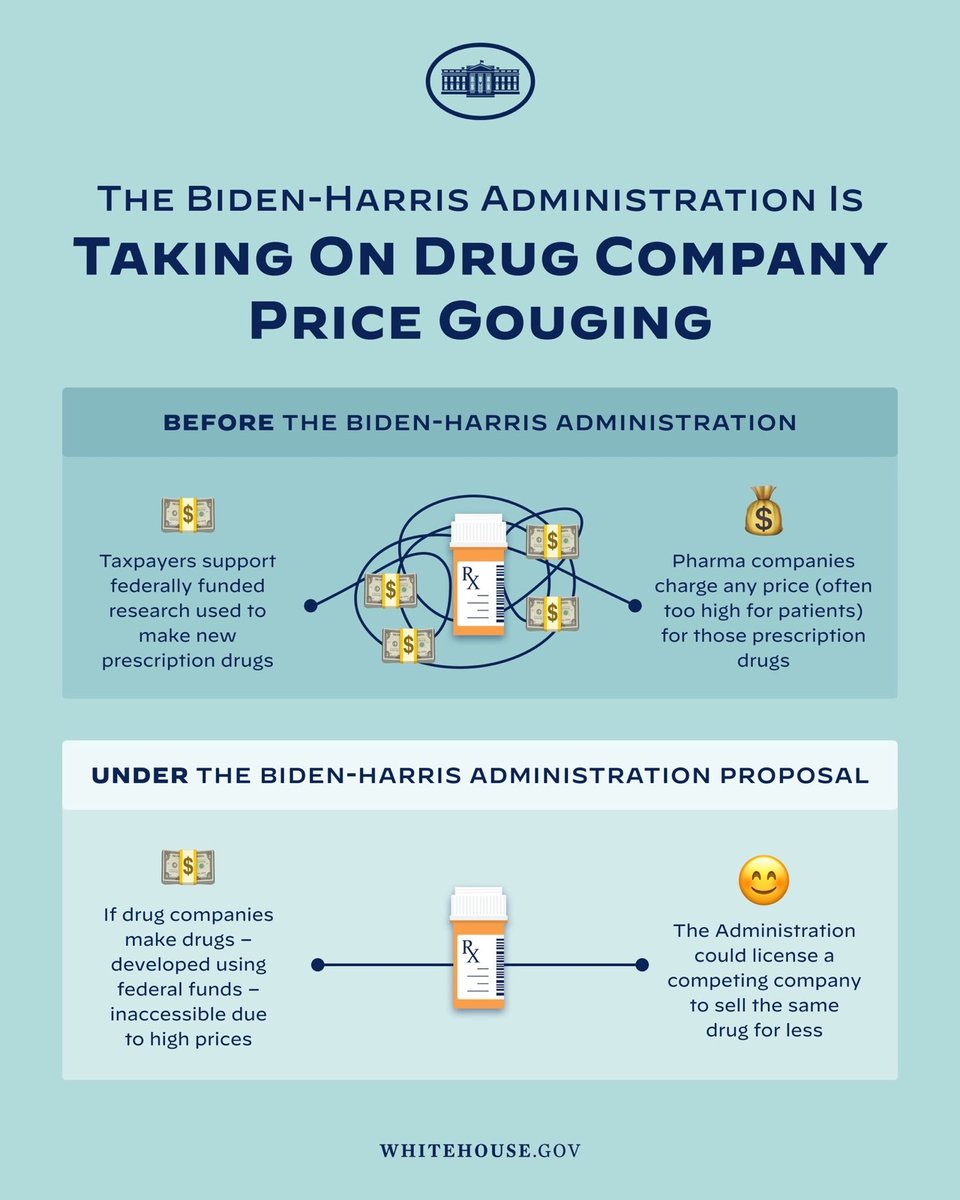
Today, we remember the 2,403 service members and civilians who lost their lives 82 years ago at Pearl Harbor.
— President Biden (@POTUS) December 7, 2023
That morning, our Greatest Generation answered the call to defend freedom.
Let us never forget their resolve as we defend America against those who seek to do us harm. pic.twitter.com/aUOTSWs1tx
President Biden announces another $5 BILLION in student debt relief, bringing the total approved debt cancellation by the Biden-Harris Administration to $132 billion for over 3.6 million Americans. https://t.co/IWocUvjz0c
— MeidasTouch (@MeidasTouch) December 7, 2023
Happy Hanukkah from the Biden-Harris Administration! pic.twitter.com/FEsQlYSaZb
— The White House (@WhiteHouse) December 8, 2023
Tonight, families around the world will light the first candles of Hanukkah. And for eight nights, those flames will light others, spreading their light.
— Jill Biden (@FLOTUS) December 8, 2023
May the glow of our White House Menorah join yours to celebrate the miracle of faith and the strength in each of us. pic.twitter.com/tDsHf6SAYx
The story of Hanukkah teaches us that even a little bit of light, wherever it is found, can dispel the darkness and illuminate a path forward.
— President Biden (@POTUS) December 8, 2023
From our family to yours, Jill and I wish you and your loved ones a Chanukah Sameach, a Happy Hanukkah! pic.twitter.com/QnUBCFS6Id
___________________________
Kamala is always busy.
Tonight, we proudly light our menorahs and let them shine out our front windows as a reminder that even in darkness, we can bring forth the light. From our family to yours, happy Hanukkah! pic.twitter.com/oGxtnYtxOn
— Douglas Emhoff (@SecondGentleman) December 8, 2023
___________________________
Hanukkah Greetings from near and far.
President Zelensky joined rabbis from all over Ukraine to light the first candle of Hanukka. 🕎✡️🇺🇦
— Republicans against Trump (@RpsAgainstTrump) December 7, 2023
pic.twitter.com/Bs5HNCeMwH
With respect and love for those celebrating the Festival of Lights, let us stand in solidarity with Jewish communities around the globe.
— Nancy Pelosi (@SpeakerPelosi) December 7, 2023
Wishing you and your loved ones a happy Hanukkah, from my family to yours. pic.twitter.com/NmF775Xv85
At a Hanukkah Rally in New York, Prayers, Candles and Calls for Cease-Fire.
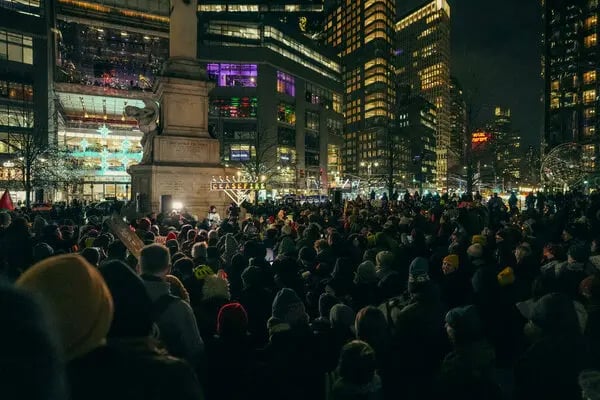
On the first night of Hanukkah, which comes two months into the Israel-Hamas war, demonstrators mourned the Israelis and Palestinians who had been killed.
Hundreds of people gathered in Columbus Circle in Manhattan on Thursday evening, the first night of Hanukkah, to light candles for the holiday and to call for a cease-fire in Gaza.
Bundled in winter coats and holding menorahs, the demonstrators came together more in commemoration than in celebration, expressing grief for the Israelis and Palestinians who had been killed in the two months since the Oct. 7 attacks that began the Israel-Hamas war. They sang prayers as they stood around a large menorah bearing the word “cease-fire” in colorful lighted letters.
“This just feels like a very powerful opportunity for us to continue to be very, very loud and clear that we see no military solution to this conflict,” said Audrey Sasson, the executive director of Jews For Racial & Economic Justice, one of the event’s organizers.
The event illustrated the complicated emotions that surround this year’s Hanukkah celebrations for some Jewish New Yorkers. Both antisemitic and anti-Muslim hate crimes have risen, placing the city on edge. At the same time, many left-leaning Jews have said they feel called to protest the deaths of civilians in Gaza as well as in Israel and to separate their Jewish identity from the actions of the Israeli government.
“As a Jewish person, my identity is being used to kill innocent people,” Ben Sullivan, 28, said. “It makes me really upset, but it gives me a lot of hope to see so many other Jewish people who feel the same way.”
Sophie Ellman-Golan, the communications director for Jews For Racial & Economic Justice, said that Thursday night’s rally was designed to be an inclusive event for people of all backgrounds to come together in solidarity with Palestine. The event’s other sponsors included the progressive groups Jewish Voice for Peace and IfNotNow.
In between prayers, several speakers addressed the crowd, including rabbis with the organization Rabbis for Ceasefire, the actor Wallace Shawn and Linda Sarsour, a Palestinian American activist.
“What I will tell you is that you are a people of courage,” Ms. Sarsour said. “We resist those who want to divide our communities.”
Raina Clark-Gaun, 43, and her 9-year-old son, who are not Jewish, came to light a candle and to honor Hisham Awartani, one of the three Palestinian American college students who were shot in Burlington, Vt., last month. Ms. Clark-Gaun said that Mr. Awartani, who was paralyzed in the attack, is the cousin of a friend of hers.
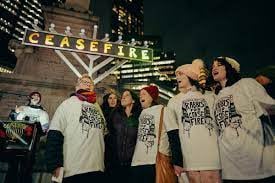
The gathering’s sponsors included Rabbis for Ceasefire, which describes itself as “an ad hoc group of rabbis and rabbinical students across political affiliations and denominations.”
“I think it’s beautiful that these Jewish organizations are so compelled and impassioned to come out and to advocate for peace,” Ms. Clark-Gaun said. “They’re constantly out there on the front lines elevating the need for a cease-fire when our government is refusing leadership on it.”
Suzan Moss, 72, also voiced frustration with the United States government’s provision of military funding to Israel. She has relatives in Israel, she said, but has always identified as a secular Jew.
“It’s being done in my name, with my taxpayer dollars,” she said.
As the rally dispersed and people headed for the warmth of subway stations or the nearby mall, they were handed posters that read “Cease-Fire Now” and encouraged to display the message in their windows, as they would a menorah during Hanukkah. (New York Times).
___________________________
More reasons it’s a good thing we are going to make sure Joe Biden wins in 2024.
Trump's loyalty-first cabinet picks may include Bannon, Miller
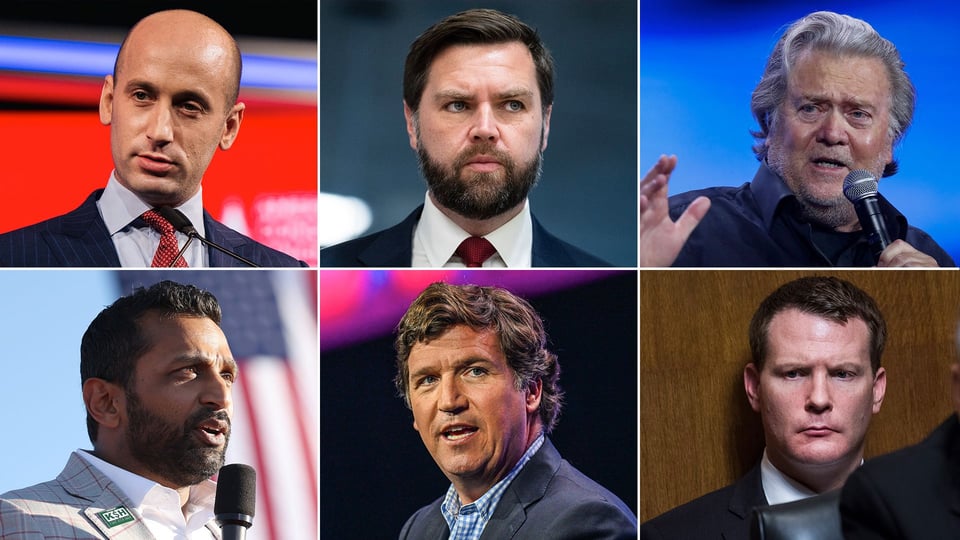
Clockwise from top left: Stephen Miller, Sen. J.D. Vance, R-Ohio; Steve Bannon, Mike Davis, Tucker Carlson and Kash Patel. Photos: Giorgio Viera/AFP, Tom Williams/CQ-Roll Call, Eva Marie Uzcategui/Bloomberg, Brandon Bell, Justin Sullivan/Getty Images.
Former President Trump, if elected, would build a Cabinet and White House staff based mainly on two imperatives: pre-vetted loyalty to him and a commitment to stretch legal and governance boundaries, sources who talk often with the leading GOP presidential candidate tell Axios.
Why it matters: Trump would fill the most powerful jobs in government with men like Stephen Miller, Sen. J.D. Vance of Ohio and Kash Patel — with the possible return of Steve Bannon. If Trump won in 2024, he'd turn to loyalists who share his zeal to punish critics, purge non-believers, and take controversial legal and military action, the sources tell us.
Trump and his prospective top officials don't mince words about their plans:
They want to target and jail critics, including government officials and journalists; deport undocumented immigrants or put them in detainment camps, and unleash the military to target drug cartels in Mexico, or possibly crack down on criminals or protesters at home.
They want to scrap rules that limit their ability to purge government workersdeemed disloyal.
What's happening: Trump hasn't settled on specific roles for specific figures, and hates it when his staff and friends speculate otherwise. It's not in his DNA to do detailed personnel planning, and a lot depends on the last few people he's talked to.
But in rolling conversations with friends and advisers, he's been clear about the type of men — and they're almost all older, white men — he'd want to serve at his pleasure if he were to win a second term.
Between the lines: We wrote last month about the multimillion-dollar effort to vet loyalists for up to 50,000 lower-level government jobs in a Trump administration. This is about their potential bosses.
It's unclear who would land where, but make no mistake: These are specific prototypes of Trump Republicans who would run his government. This is very different from the early days of his first term, when he was restrained by more conventional officials, from John Kelly to James Mattis to Gary Cohn.
This time, it'd be all loyalists, no restraints.
Here's our latest intelligence on what's being discussed among Trump and a small group of confidants:
Vice president: Trump talks openly to friends about several possibilities for running mate. Table stakes for these candidates is proving you believe the 2020 election was stolen and that former Vice President Mike Pence wimped out by allowing its certification.
Those who'd be considered include J.D. Vance, the "Hillbilly Elegy" author and a MAGA favorite; Arkansas Gov. Sarah Huckabee Sanders; Kari Lake, a leading election denier now running for U.S. Senate in Arizona, and South Dakota Gov. Kristi Noem. (Vance might prefer to remain in the Senate as "Trump's hammer," we're told.)
Rep. Byron Donalds (R-Fla.), one of the few Black Republicans in Congress, has traveled with Trump on the campaign and would love to be V.P. Rep. Marjorie Taylor Greene, who lost her House committee assignments because she pushed baseless conspiracy theories, also gets mentioned.
But here's an interesting twist: Melania Trump is an advocate for picking Tucker Carlson, the booted Fox News star. She thinks Carlson would make a powerful onstage extension of her husband, a source close to Trump told us. The former first lady has made few campaign appearances this time around — but a Trump-Carlson ticket might encourage her to hit the trail.
Trump, asked last month about Carlson as a potential V.P., said: "I like Tucker a lot. ... He's got great common sense."
The idea of Tucker Carlson has been discounted by many people close to Trump because they assume he'd never pick someone who could outshine him. And Trump's staff is convinced (correctly) that Carlson can't be controlled. But the two men talk a lot.
Others likely to wield power in a second Trump term share a lot in common with Carlson. They're full, proud MAGA warriors, anti-GOP establishment zealots, and eager and willing to test the boundaries of executive power to get Trump's way. They include:
Stephen Miller: He could be your next attorney general and, if not that, get a Cabinet-level role to greatly influence immigration policy.
He was the architect of Trump's most controversial immigration plans in the first term — including family separation — and has written and spoken extensively about unprecedented plans to detain, purge and punish undocumented immigrants if put back in charge. He's eager to test the boundaries of what courts and the military can do to make this happen fast.
Miller currently heads a nonprofit dedicated to suing the Biden administration and promoting "America First" causes, and has been leading efforts to recruit an army of right-wing lawyers to staff a MAGA-dominated executive branch.
Carlson told Axios that Miller would be his first choice to lead the Justice Department: "He's a serious person and he understands how the system works."
Mike Davis: Donald Trump Jr. has floated Davis, the former chief counsel for nominations to then-Senate Judiciary Chairman Chuck Grassley (R-Iowa), to be Trump's interim attorney general — saying it would be a "shot across the bow of the swamp."
In his public auditions for the job, the bombastic Davis has promised a "three-week reign of terror" in which he would "put kids in cages" and jail prosecutors and journalists who have gone after Trump — even telling MSNBC's Mehdi Hasan that he has "his spot picked out in the D.C. gulag."
A source close to the Trump campaign told us A.G. is the office where Trump is "most likely to make a shocking pick," with the defiant view: "You want to weaponize DOJ, mother----er?'"
Steve Bannon: In the early days of Trump's first term, he was arguably the most powerful man on staff, plotting personnel and policy decisions from his Capitol Hill townhouse. Then, he was ousted and frozen out. Now, thanks to his popular podcast and pro-Trump fervency, he's back.
He could be the next White House chief of staff, an idea Carlson and a few others are pushing hard with the former president.
Carlson tells Axios that Bannon would diligently implement promises after Trump lost interest. "Steve believes: If you said we're building a wall, we're building a wall," Carlson said.
Bannon — who is appealing a contempt of Congress conviction — has proud authoritarian beliefs and sees everything as an existential war between good (Trump) and evil (Democrats, establishment Republicans, the media).
Kash Patel: A protege of former Rep. Devin Nunes (R-Calif.) who led efforts to discredit the Russia investigation, Patel came to be viewed as a political mercenary in Trump's war against the intelligence community. The former Pentagon official would be considered for a top national security job in the next administration, possibly even running the CIA or NSC.
In 2021, Patel authored an illustrated children's book about the Russia investigation in which "King Donald" is a character persecuted by "Hillary Queenton and her shifty knight."
Trump took a shine to Patel in his first term but was talked out of making him a deputy director of the FBI or CIA by senior officials — including former Attorney General Bill Barr, who wrote in his memoir that it would happen "over my dead body."
Former CIA director Gina Haspel threatened to resign over a plan to install Patel as her deputy in the final weeks of Trump's presidency, when he became convinced the intelligence community possessed documents that could damage his political enemies.
Steve Bannon said this week on his "War Room" podcast that Patel would "probably" be CIA director in a second term.
Patel told Bannon: "One thing we learned in the Trump administration the first go-round is we've got to put in all of our compatriots from top to bottom. And we've got them for law enforcement ... [Defense Department], CIA, everywhere. ... Yes, we're going to come after the people in the media who lied about American citizens."
To avoid a confirmation battle, Patel also might have a National Security Council role where he could do special projects for Trump — or even be national security adviser.
Johnny McEntee, Trump's loyalty vetter and enforcer, headed presidential personnel in the first term. McEntee might return to that role with even more power. He also could be Trump's gatekeeper as head of Oval Office operations, or could be Cabinet secretary, riding herd on the White House liaisons to each department.
A former colleague described McEntee to us as "Trump's utility player — a guaranteed loyal ally, wherever you place him, who'd make sure the Trump agenda was being implemented."
The 33-year-old former UConn quarterback was empowered by the end of Trump's term in a way his predecessors never were — tasked with systematically purging officials deemed insufficiently loyal and making significant staffing changes without the consent of agency heads.
By late 2020, McEntee had explicit lists of top officials to fire and hire in a Trump second term, reaching far down the federal bureaucracy in a mission to truly "clean out" the "Deep State." That project has continued outside of government with a $22 million presidential transition project led by the Heritage Foundation.
"The president's plan should be to fundamentally reorient the federal government in a way that hasn't been done since F.D.R.'s New Deal," McEntee told the N.Y. Times, arguing the current system "was conceived of by liberals" and must be completely overhauled.
In the final days of the Trump administration, McEntee sought to orchestratethe withdrawal of U.S. troops from Afghanistan, Iraq, Syria, Germany and Africa — a last-minute gambit by the president stifled by guardrails that likely wouldn't be present in a second term.
Jeffrey Clark — a former assistant attorney general for Trump who could get a top Justice Department slot — is the rare person to be considered for a future administration while under indictment.
In the weeks after the 2020 election, the little-known environmental lawyer urged top DOJ officials to announce they were investigating baseless claims of election fraud, which they rejected.
Trump then considered appointing Clark as acting attorney general as the pair plotted to overturn the election results, prompting DOJ leadership to threaten to resign en masse.
Clark was charged as part of the Trump racketeering case in Fulton County, Ga., over his attempts to have DOJ send a letter to Georgia officials declaring that fraud may have altered the outcome of the 2020 election.
Prosecutors say the statement was false and furthered the conspiracy to overturn the election. Clark pleaded not guilty.
Ric Grenell — former ambassador to Germany, and Trump's acting director of national intelligence — would be on the short list for secretary of state.
Grenell infuriated European diplomats with his "America First" broadsides during his time in Berlin, and has basked in his reputation as an online troll beloved by the MAGA movement for his willingness to go on the attack.
Career intelligence officials have labeled Grenell — who declassified Obama-era intelligence in an effort to reshape perceptions of the Russia investigation — the least-experienced and most overtly political appointee ever to serve as head of the intelligence community.
In Grenell's last Cabinet meeting before his exit, Trump praised him as an "all-time great acting [official], at any position."
Former national security adviser Robert O'Brien, a more traditional conservative who remains in Trump's good graces, would be a more confirmable pick for secretary of state.
Susie Wiles: Some in Trumpworld assume the most likely chief of staff is Wiles, the longtime Florida political operative who's running Trump's campaign.
The campaign so far has avoided the gusher of leaks that have been hallmarks of Trump operations. She's seen as an adept Trump enabler who would serve loyally, with discipline. By bridging the campaign and the administration, she'd provide continuity.
Trump's pell-mell style could push him to a wild-card choice for chief. "Everyone he knows is a direct report," said one former Trump administration official.
John Ratcliffe, the former Texas congressman who was Trump's final DNI, would be considered to head the CIA, for a return to DNI, for defense secretary or even for vice president.
Ratcliffe, a China hawk, was one of Trump's fiercest allies in Congress during the first impeachment inquiry. He later used his authority as the nation's top intelligence official to declassify information aimed at calling into question the origins of both COVID and the Justice Department's Russia investigation.
Jamie Dimon: Trump is open to a few more mainstream picks if they bring celebrity or pizzazz. For example, Trump would consider JPMorgan Chase CEO Jamie Dimon, a Democrat, to head Treasury. "He wants a big name," a source close to the campaign said. "And he loves billionaires."
It's not clear Dimon would take the job — he's been talking privately with Nikki Haley about the global economy as she tries to knock off Trump for the nomination. Dimon told the N.Y. Times DealBook conference that Haley would be "a choice on the Republican side that might be better than Trump."
Dimon added: "He might be the president, and I have to deal with that, too."
Sen. Tom Cotton of Arkansas — a former Army infantry officer known for his hard edge, and who wrote a New York Times op-ed in Trump's first term supporting use of the Insurrection Act against civil disorder — would be considered to head the Pentagon.
Lee Zeldin —a former congressman from Long Island who deployed to Iraq as an Army paratrooper — is another confirmable option for the Pentagon.
Like Cotton, Zeldin is considered more confirmable than many others in the mix.
Jared Kushner, who was a huge power center in Trump's West Wing, has mostly kept his distance from the campaign so far — but might well return to the White House if his father-in-law wins again, with a continued interest in Middle East policy.
Because Kushner would be talking with Trump's authority to world leaders anyway, one option would be secretary of state.
What to watch: The heads of Cabinet departments don't have full powers unless confirmed by the Senate. Many of Trump's wannabe secretaries would have difficulty winning confirmation.
But Trump made unprecedented use of "acting" Cabinet members, who have temporary power over agencies even without Senate approval. And we're told he'd be prepared to push the envelope on ambiguities about how many stints an "acting" could serve.
"I sort of like 'acting,'" Trump said in 2019. "It gives me more flexibility." (Axios).
___________________________
As ever, this man thinks he is above the law.
Trump is saying in this stay request that based on his own fabricated legal conclusion he has unilaterally decided he is not participating in the DC federal criminal case and its associated deadlines and obligations. Expect scathing responses from Judge Chutkan and Jack Smith. pic.twitter.com/AVBzGQaX07
— Ben Meiselas (@meiselasb) December 7, 2023
___________________________
This man 👇 looks like Kevin McCarthy. That’s because he is Kevin McCarthy.
Touch to watch.
Kevin McCarthy: “When you look at the Democrats, they actually look like America. When I look at my party, we look like the most restrictive country club in America.” pic.twitter.com/UFJTmTY75c
— No Lie with Brian Tyler Cohen (@NoLieWithBTC) December 7, 2023
___________________________
Fallout from the brutal grilling of the Presidents of Harvard, MIT, and Penn.
NEWS
— Yashar Ali 🐘 (@yashar) December 8, 2023
University of Pennsylvania President Liz Magill is being asked to resign by the board of Penn's Wharton business school. https://t.co/ofrbxiSz19 pic.twitter.com/wySprjgjnE
Breaking - UPenn donor Ross Stevens, CEO of Stone Ridge Asset Management, pulls a $100 million donation to the school.
— StopAntisemitism (@StopAntisemites) December 7, 2023
We commend Ross Stevens and urge other donors from Penn, Harvard, MIT, Yale, Cornell, et al to follow suit.
Enough is enough! pic.twitter.com/XSQ0Z5Lp5D
At a Hearing on Israel, University Presidents Walked Into a Trap.
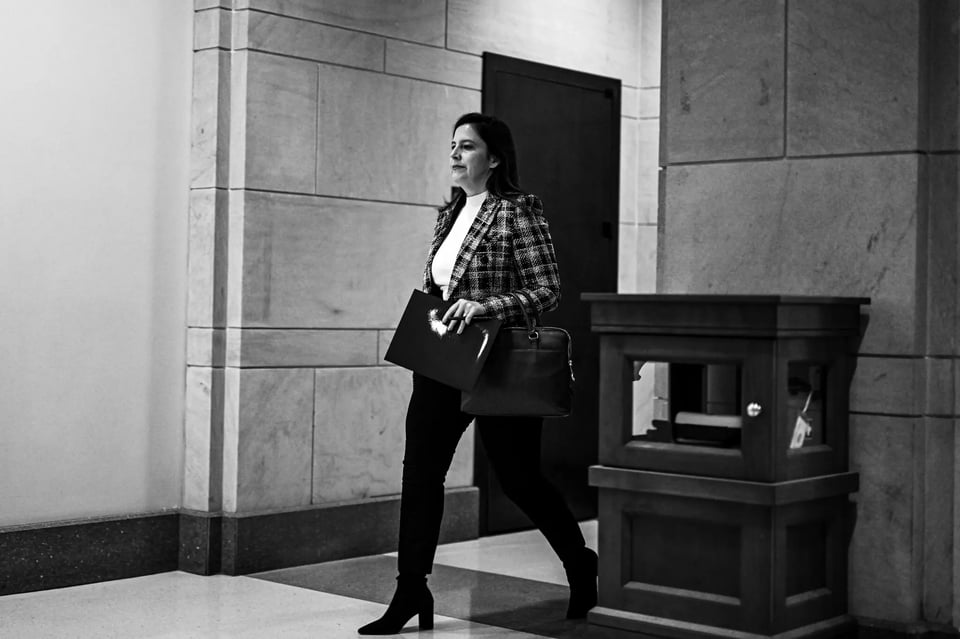
Elise Stefanik.
On Wednesday, a dear friend emailed me a viral clip from the House hearing on campus antisemitism in which three elite university presidents refuse to say, under questioning by Representative Elise Stefanik, a New York Republican, that calling for the genocide of Jews violates school policies on bullying and harassment. “My God, have you seen this?” wrote my friend, a staunch liberal. “I can’t believe I find myself agreeing with Elise Stefanik on anything, but I do here.”
If I’d seen only that excerpt from the hearing, which has now led to denunciations of the college leaders by the White House and the Democratic governor of Pennsylvania, among many others, I might have felt the same way. All three presidents — Claudine Gay of Harvard, Sally Kornbluth of M.I.T. and Elizabeth Magill of the University of Pennsylvania — acquitted themselves poorly, appearing morally obtuse and coldly legalistic. It was a moment that seemed to confirm many people’s worst fears about the tolerance for Jew hatred in academia.
But while it might seem hard to believe that there’s any context that could make the responses of the college presidents OK, watching the whole hearing at least makes them more understandable. In the questioning before the now infamous exchange, you can see the trap Stefanik laid.
“You understand that the use of the term ‘intifada’ in the context of the Israeli-Arab conflict is indeed a call for violent armed resistance against the state of Israel, including violence against civilians and the genocide of Jews. Are you aware of that?” she asked Gay.
Gay responded that such language was “abhorrent.” Stefanik then badgered her to admit that students chanting about intifada were calling for genocide, and asked angrily whether that was against Harvard’s code of conduct. “Will admissions offers be rescinded or any disciplinary action be taken against students or applicants who say, ‘From the river to the sea’ or ‘intifada,’ advocating for the murder of Jews?” Gay repeated that such “hateful, reckless, offensive speech is personally abhorrent to me,” but said action would be taken only “when speech crosses into conduct.”
So later in the hearing, when Stefanik again started questioning Gay, Kornbluth and Magill about whether it was permissible for students to call for the genocide of the Jews, she was referring, it seemed clear, to common pro-Palestinian rhetoric and trying to get the university presidents to commit to disciplining those who use it. Doing so would be an egregious violation of free speech. After all, even if you’re disgusted by slogans like “From the river to the sea, Palestine will be free,” their meaning is contested in a way that, say, “Gas the Jews” is not. Finding themselves in a no-win situation, the university presidents resorted to bloodless bureaucratic contortions, and walked into a public relations disaster.
The anguished and furious reaction of many Jews to that viral clip is understandable. Jewish people of many different political persuasions have been stunned by the rank antisemitism and contempt for Israeli lives that has exploded across campuses, where Jewish students have been threatened and, in some cases, assaulted. This week, when I wrote that the backlash to anti-Israel protests threatens free speech, I received many emails from people who felt I was refusing to grapple with an evident crisis. “You are worried about an overreaction when there hasn’t yet been a sufficient reaction to the antisemitism terrifying Jewish students on campus,” said one.
But it seems to me that it is precisely when people are legitimately scared and outraged that we’re most vulnerable to a repressive response leading to harmful unintended consequences. That’s a lesson of Sept. 11, but also of much of the last decade, when the policing of speech in academia escalated in ways that are now coming back to bite the left.
Amid the uproar over the campus antisemitism hearing, many have claimed that if Stefanik were asking about attacks on any other ethnic group, there would have been no waffling. But Stefanik did ask about another group. Her first question to Gay was, “A Harvard student calling for the mass murder of African Americans is not protected free speech at Harvard, correct?” Gay started to respond, “Our commitment to free speech,” but Stefanik, perhaps realizing she wasn’t going to get the answer she wanted, cut her off and changed tack.
Yet clearly, at many universities, the defense of free speech has been inconsistent. Some elite schools now cloaking themselves in the mantle of the First Amendment to ward off charges of coddling antisemites have, in the past, privileged community sensitivity over unbridled expression. So when university administrators say, as Gay did, “We embrace a commitment to free expression, even of views that are objectionable, offensive, hateful,” many in the Jewish community see a galling double standard.
But as the Foundation for Individual Rights and Expression, a libertarian-leaning civil liberties group, said in a statement about the hearings, “Double standards are frustrating, but we should address them by demanding free speech be protected consistently — not by expanding the calls for censorship.” Unfortunately, that is not what’s happening.
“The general point that there’s a hypocrisy around free speech and an imbalance around free speech on college campuses is right,” said Ryan Enos, a Harvard professor of government. But, he said, many of the people pointing this out “are not doing it to stand up for free speech; they’re just doing it because they want to shut down speech they disagree with.”
Enos was a founding member of the Council on Academic Freedom at Harvard, formed this year. In October he resigned, because, he said, “Some of the leadership led the charge to restrict pro-Palestinian speech on campus.” When it comes to speech about Israel, there is plenty of hypocrisy to go around.
Like me, Enos found the hearings shocking, though not for the reasons many supporters of Israel did. At one point, Virginia Foxx, the North Carolina Republican who is the chairwoman of the committee holding the hearing, asked each of the presidents whether she believed that Israel has the right to exist as a Jewish state. Now, I think that calls to dismantle Israel are misguided at best and often despicable, but it was wildly inappropriate for educational leaders to be asked to affirm their Zionism before a government panel. It felt reminiscent of the anti-Communist witch hunts of the House Un-American Activities Committee: “Are you now, or have you ever been, an anti-Zionist?”
“I have a real problem with questions where you think there’s only one right answer,” said Enos. “You’re not asking a true question. You’re asking for some kind of loyalty display. And I think those things are especially dangerous.”
It’s not clear that these college presidents will keep their jobs after their performance at the hearing. But whatever happens, we’re likely to see a crackdown on many forms of pro-Palestinian expression. On Wednesday, amid mounting calls for her resignation, Penn’s Magill posted an apologetic video statement online. For decades, said Magill, Penn’s policies on speech have been guided by the Constitution and the law, but going forward, a different framework may apply.
“In today’s world, where we are seeing signs of hate proliferating across our campus and our world in a way not seen in years, these policies need to be clarified and evaluated,” she said. Expect more safety and less freedom.(Michelle Goldberg, New York Times).
Additionally, This Happened in NYC Yesterday.
Another smoldering heap of a university. @Columbia University stated that a planned student event to celebrate the October 7 “Palestinian Counteroffensive” would not be permitted to take place.
— Aviva Klompas (@AvivaKlompas) December 7, 2023
Yet here they are calling murder, rape, torture and kidnapping “great feats”… pic.twitter.com/HTOFz6YJia
___________________________
Now let’s take back George Santos’ seat in Congress.
Happy Hanukkah from the Biden-Harris Administration! pic.twitter.com/FEsQlYSaZb
— The White House 46 Archived (@WhiteHouse46) December 8, 2023
___________________________
Who the Republican Speaker Mike Johnson is.
Mike Johnson told a gathering of Christian nationalists last night that weeks before he became House Speaker, "the Lord told me very clearly" to prepare to become a "Moses" who will lead the nation through a "Red Sea moment." https://t.co/DDsoZOcNC6 pic.twitter.com/exCrSnsW2Y
— Right Wing Watch (@RightWingWatch) December 6, 2023
___________________________
News from Paris.
The restoration of Notre Dame hits a milestone Friday: one year until the cathedral reopens its huge doors to the public, on Dec. 8, 2024. https://t.co/X4rbHJzzO9
— PBS NewsHour (@NewsHour) December 7, 2023
Paris is getting a whole new Metro network. And it’s huge.
ParisCNN —
With gorgeous art nouveau entrances, maze-like tunnels and trains that rattle briskly under, and occasionally over, some of the world’s most famous streets, it’s a transport network that has inspired movies, novels and poetry.
It has stations named after a South American revolutionary, a US president and a Soviet victory. Fittingly, in a city that is home to some of the world’s most famous galleries, some of the stations are considered works of art in their own right.
But the Paris Métro railway system, built in the 1900s and now carrying nearly four million passengers every day, is struggling to cope with the demands of modern commuting, its ageing facilities and infrastructure creaking under the city’s growing population.
For many in Paris, particularly those living or working around its less fashionable outer suburbs, it’s a challenge to navigate across the city without having to route each journey through the central districts, adding travel time and worsening congestion.
But change is coming – and on a huge scale. The venerable Paris Métro is about to get its most significant upgrade in decades with the arrival of the Grand Paris Express, a new 200-kilometer (120-mile) system that will add four lines and 68 brand-new stations to the network.
These will mainly be connecting suburban towns without passing through the densely populated city of Paris – adding outer rings to an underground map of Paris that has, until now, been made of 14 lines that only reach out from the center like spokes.
It’s been an epic undertaking. Construction of the lines, which began in 2016, is the biggest civilian infrastructure project in Europe, according to the French government. Inevitably, given the scale, it has been hit by delays.

Driverless trains
But that didn’t stop the city from showing some Parisian pzazz late last month as the first train for the new Métro lines was taken for a test drive, attracting crowds of invited onlookers to a railway depot in the suburb of Champigy-sur-Marne.
The 108-meter-long six-car train, the first of its kind produced by Alstom for the Grand Paris Express, made its debut amid triumphal music and a light show of lasers in the French flag colors of white, blue and red.
“To change people’s lives, we will have to change how they move,” French Transport Minister Clément Beaune said at the November 28 event, which saw the train make a successful two-kilometer test run along a section of line 15, one of the new routes.
France hopes the Grand Paris Express will significantly cut transport time for suburb-to-suburb movement on public transit and reduce car usage for residents in the Greater Paris region.

A rendering showing how part of Gare Villejuif, one of the stations on the new Grand Paris Express network, will look.
Unlike other Métro lines, it will use driverless trains to create a fully automatic rapid transport network, meaning there will be no need to hire and train new drivers, plus there will be greater resilience against disruptions from strikes.
“We are on the right track for success,” Beaune laughed. “It will serve as a good example for cities across France.”
Paris was among the world’s first cities to have a metro system. Its first line opened in 1900 as part of the city’s construction efforts to host the Olympic Games that same year. It expanded rapidly and extensively during the decades that followed.
Prior to the opening of the Grand Paris Express, it had already evolved into a sprawling 800-kilometer mega system encompassing 16 central city metro lines and five Réseau Express Régional, or RER, commuter rail lines for the surrounding suburbs.
The new project will introduce four new lines – 15, 16, 17 and 18 - plus extensions to existing lines 11 and 14.

The new services will add to the RER lines which serve the suburbs surrounding Paris.
A greener future
For many living in the city, the new routes can’t come quickly enough.
“I love living in Versailles but sometimes it’s just a lot,” said Lauren Bain, 26, a journalist working in Paris but living in the city of Versailles, roughly 20 kilometers southwest of the capital.
Bain says she attends church in the neighboring town of Saint Aubin, ostensibly a 20-minute drive away, but two hours by bus, which is how she currently makes the journey. It can take even longer; she was stuck on a bus half-submerged in water during heavy rainfall.
She commutes to work in the center of Paris via the RER C line, which she has little love for despite the convenience of a station in Versailles.
“That thing is terrible,” she said. “I arrive late at work all the time! Just earlier this week, my train was canceled for no reason.”
Once the new Grand Paris Express line 18 opens, connecting Versailles directly to Saint Aubin, as well as Paris Orly Airport, the city’s second-busiest, her options are set to improve.
“Line 18 cannot open sooner,” Bain said.
Mohamed Mezghani, secretary general of the International Association of Public Transport, based in Brussels, says the new lines puts Paris at the forefront of city public transport networks – alongside Tokyo, Moscow and Washington D.C., looking to reduce environmental impact through suburban interconnectivity.
“The Grand Paris Express, with its circular lines, encourages movement from suburb to suburb,” Mezghani said.
“People in big cities are realizing that cars are not a solution, congestion keeps worsening and building more roads will only attract more traffic.
“We need this updated version of public transportation.”
The Olympic finish line
One big question for many Parisians – and for visitors to the city – is whether the new network will be operational in time for the 2024 Olympic Games, which will mostly be staged around the French capital.
This was the original plan when the project was announced by then President Nicolas Sarkozy in 2009, long before the city won its Olympic bid. But numerous delays have stretched the timeline.
A full opening of line 14 by now, plus partial opening of lines 15, 16, 17 and 18, which together connect to both Paris international airports, had been promised by Sarkozy and his successor François Hollande.
However, the project has been hit by various setbacks during the years, including construction site floods, delays in equipment delivery, and perhaps most crucial of all, the Covid pandemic.
And eight months before the 2024 Olympic Games, only the extension of line 14 to Orly Airport is expected to open in time. The other lines will gradually come on line starting in late 2025, according to the project’s official website.
France’s Transport Ministry remains upbeat about the impact the new rail lines will have on Paris, insisting that network capacity will be increased by 15% in time for the Games, which are forecast to attract millions of visitors to the city, already a popular summer destination.
“Our action plan is clear, and we’re on schedule,” it told CNN.
Even behind schedule, the new lines are likely to enhance the French capital’s appeal.
As writer Ernest Hemingway once remarked: “There are only two places in the world where we can live happy: at home and in Paris.” And once the new Grand Express lines open, hopefully the distance between them will shrink a little further.
___________________________